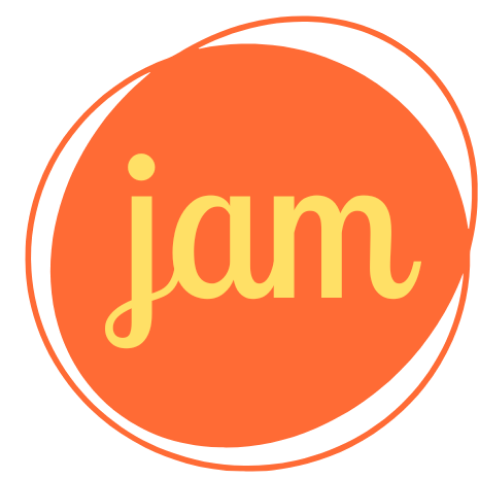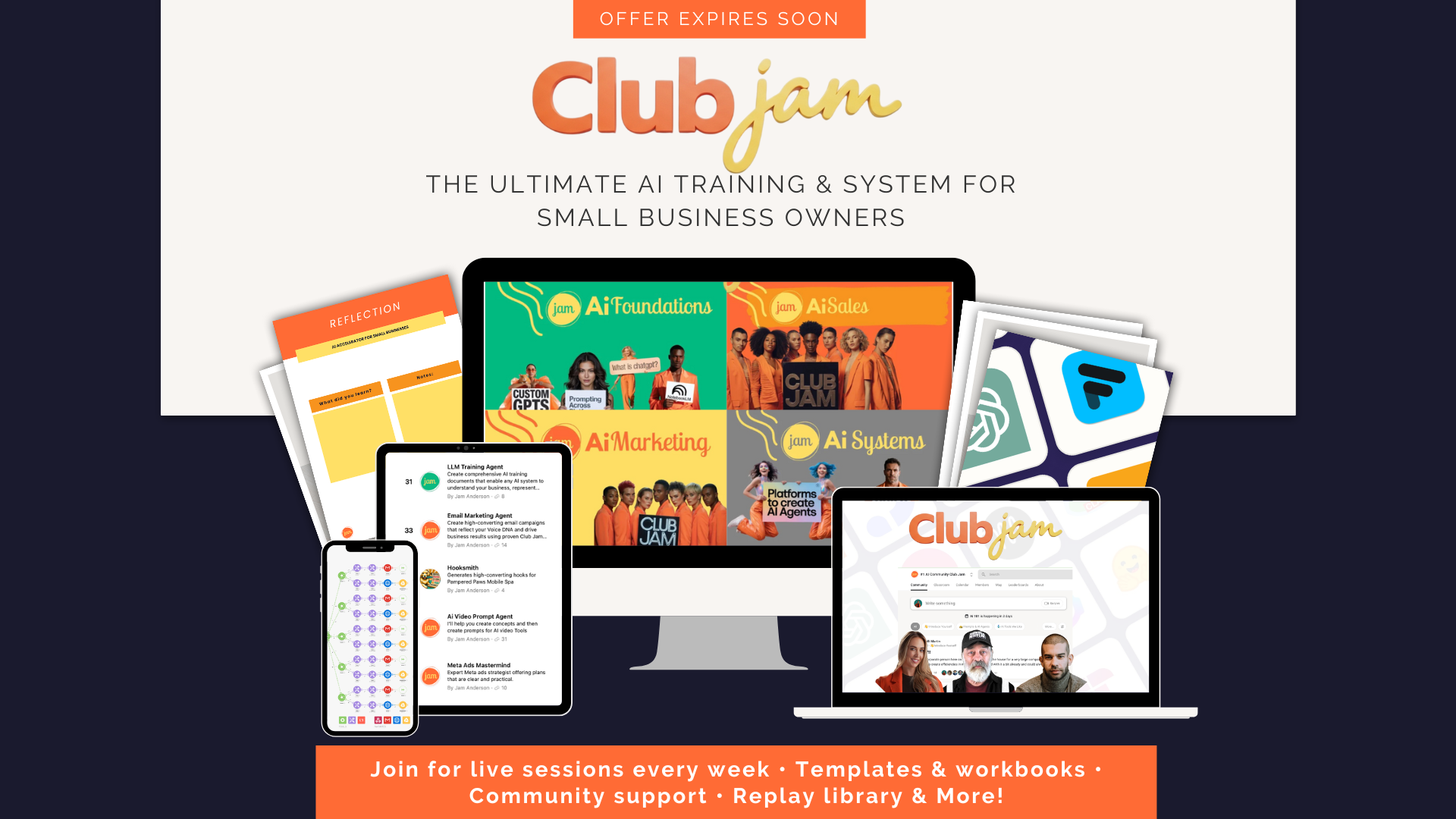
Best Workflow Automation Tools for Small Businesses in 2025: The Complete Guide
Oct 16, 2025Best Workflow Automation Tools for Small Businesses in 2025: The Complete Guide
Running a small business means wearing multiple hats, but what if AI and automation could handle the repetitive tasks while you focus on growth? Jam AI helps businesses discover and implement the perfect automation stack. Here's everything you need to know about workflow automation tools that can transform your operations.
Why Workflow Automation Matters for Small Businesses
Workflow automation eliminates manual tasks, reduces errors, and frees up valuable time. Small businesses using automation report saving up to 12 hours per month on administrative tasks alone. Whether you're managing projects, nurturing leads, or handling accounting, the right automation tools can scale your operations without scaling your team.
Top No-Code Automation Platforms
Visual Automation Tools Comparison
|
Platform |
Apps Connected |
Starting Price |
Best For |
Learning Curve |
|
Zapier |
8,000+ |
$19.99/month |
Non-technical teams |
Beginner |
|
Make (Integromat) |
1,500+ |
$9/month |
Complex workflows |
Intermediate |
|
n8n |
400+ |
Free (self-hosted) |
Technical teams |
Advanced |
|
Automate.io |
200+ |
$9.99/month |
Budget-conscious SMBs |
Beginner |
Zapier remains the market leader for no-code app integration, connecting over 8,000 apps through simple "Zaps." Its user-friendly interface makes it perfect for non-technical teams, though costs can escalate with high-volume usage.
Make (formerly Integromat) offers sophisticated visual automation with drag-and-drop functionality, error handling, and API integration. While it has a steeper learning curve than Zapier, it provides more flexibility for complex multi-step automations at a lower price point.
n8n stands out as the open-source option, offering full control and customizability for businesses concerned about vendor lock-in. Self-hosting capabilities make it ideal for teams with technical expertise who prioritize data privacy.
Project Management Automation Solutions
Feature Comparison: Project Management Tools
|
Tool |
Automation Features |
AI Capabilities |
Team Size |
Monthly Cost |
|
Monday.com |
Pre-built recipes, custom automations |
AI assistant |
2-200+ |
From $8/user |
|
Asana |
Rules-based automation, AI Studio |
AI task suggestions |
1-100+ |
From $10.99/user |
|
Wrike |
Approval automation, process AI |
AI project insights |
5-200+ |
From $9.80/user |
|
Process Street |
Checklist automation, conditional logic |
Process optimization |
1-50+ |
From $25/user |
Monday.com combines visual project management with powerful automation recipes, making it ideal for teams that need both task tracking and workflow automation in one platform.
Asana integrates AI tools through AI Studio, helping teams automate task assignments, project timelines, and team coordination with minimal setup.
Process Street specializes in recurring workflows and SOP management, perfect for businesses with repeatable processes like client onboarding or quality control checklists.
Specialized Automation Categories
CRM and Sales Automation
HubSpot Operations Hub brings enterprise-level automation to CRM workflows, including lead nurturing, data synchronization, and marketing automation. It's particularly powerful for businesses already using the HubSpot ecosystem.
Robotic Process Automation (RPA)
UiPath provides enterprise-grade RPA for automating repetitive front-office and back-office tasks, including legacy system integration and desktop automation.
Workato offers low-code integration with pre-built "recipes" for cross-system orchestration, ideal for businesses needing to connect multiple enterprise applications.
Accounting Automation
QuickBooks AI Agents (launched July 2025) revolutionize small business accounting by automating invoices, payments, and reconciliations—saving up to 12 hours monthly on bookkeeping tasks.
Implementation Strategy Guide
Workflow Automation Readiness Checklist
|
Assessment Area |
Questions to Consider |
Priority Level |
|
Current Pain Points |
Which tasks consume the most time? |
High |
|
Technical Capabilities |
Does your team need no-code solutions? |
High |
|
Budget Constraints |
What's your monthly automation budget? |
Medium |
|
Integration Needs |
Which existing tools must connect? |
High |
|
Scalability Requirements |
How much will usage grow in 12 months? |
Medium |
|
Security Concerns |
Do you need self-hosted solutions? |
Low-High |
Cost-Benefit Analysis for Small Businesses
ROI Calculator: Automation Investment
|
Business Size |
Average Time Saved/Month |
Estimated Annual Savings |
Recommended Budget |
|
1-5 employees |
15-20 hours |
$3,000-$5,000 |
$50-$150/month |
|
6-20 employees |
40-60 hours |
$8,000-$15,000 |
$150-$500/month |
|
21-50 employees |
100-150 hours |
$20,000-$40,000 |
$500-$1,500/month |
Frequently Asked Questions
What are the best workflow automation tools for small businesses with limited budgets?
For budget-conscious small businesses, Automate.io ($9.99/month) and Cflow ($11/user/month) offer excellent value. These platforms provide essential automation features without the premium pricing of enterprise solutions. Consider starting with free tiers from Zapier or Make to test automation benefits before committing to paid plans.
How do I choose between Zapier, Make, and n8n for my automation needs?
Choose Zapier if you need maximum app compatibility and ease of use for non-technical teams. Select Make for complex, multi-step workflows requiring visual design and logic branching. Opt for n8n if you have technical resources and want complete control through self-hosting, especially for sensitive data handling.
Can workflow automation tools integrate with my existing software stack?
Most modern automation platforms support extensive integrations. Zapier connects with over 8,000 apps, while Make supports 1,500+ applications. Check your specific software compatibility using each platform's integration directory before committing. API-based tools like n8n and Workato can connect virtually any software with proper configuration.
What's the difference between RPA and traditional workflow automation?
Traditional workflow automation (like Zapier or Make) connects cloud-based applications through APIs. RPA tools like UiPath can automate desktop applications, legacy systems, and tasks requiring screen interaction—essentially mimicking human actions on a computer. RPA is ideal for businesses with older software that lacks modern integration options.
How much time can small businesses realistically save with automation?
Small businesses typically save 12-20 hours monthly with basic automation implementation. Businesses using comprehensive automation across multiple departments report saving 40-60 hours monthly. QuickBooks AI Agents alone save up to 12 hours monthly on accounting tasks.
Do I need technical skills to implement workflow automation?
No-code platforms like Zapier, Monday.com, and Process Street require zero technical skills. Visual builders in Make and Automate.io need basic logical thinking but no coding. Only advanced platforms like n8n or custom RPA solutions require technical expertise.
What are AI agents in workflow automation?
AI agents are intelligent automation components that can make decisions, understand context, and handle complex tasks. QuickBooks AI Agents, for example, automatically categorize transactions, suggest optimizations, and handle routine bookkeeping without human intervention.
How do I measure ROI on workflow automation investments?
Calculate ROI by tracking time saved on automated tasks, multiplying by hourly labor costs, and comparing against automation tool costs. Include indirect benefits like reduced errors, faster processing times, and improved customer satisfaction. Most businesses see positive ROI within 2-3 months.
Can workflow automation help with compliance and documentation?
Yes, tools like Process Street excel at compliance workflows, creating audit trails and ensuring consistent process execution. Automation platforms can enforce approval chains, document completion requirements, and maintain records for regulatory compliance.
What's the best approach to getting started with automation?
Start by identifying your most repetitive, time-consuming tasks. Choose one simple workflow to automate first—like email notifications or data entry. Use free trials to test platforms before purchasing. Scale gradually as your team becomes comfortable with automation concepts.
Ready to Transform Your Business with Intelligent Automation?
Workflow automation isn't just about saving time—it's about scaling your business intelligently. Whether you're automating project management with Monday.com, connecting apps through Zapier, or revolutionizing accounting with QuickBooks AI Agents, the right tools can transform your operations.
At Jam AI, we help small businesses navigate the automation landscape, implement the right tools, and maximize their ROI. Our experts have helped hundreds of businesses save thousands of hours through strategic automation implementation.
Join Club Jam today and get exclusive access to automation blueprints, tool comparisons, implementation guides, and personalized recommendations for your business. Transform your workflows, scale your operations, and focus on what matters most—growing your business.
Join Club Jam - Where Smart Businesses Automate Success
Build Your Business with AI — Even If You’re Overwhelmed, Busy, or Just Starting Out
Club Jam gives you the tools, training, and AI team to launch, automate, and grow your business — all for $47/month. No tech confusion. Just fast wins.
Not sure where to start? Let us help you by doing a consult. We can help you identify areas within your business that can be automated.
We hate SPAM. We will never sell your information, for any reason.


